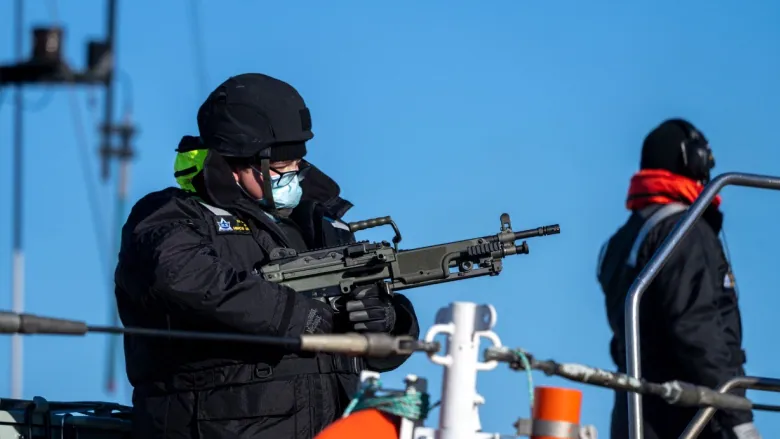‘We have to go into dangerous locations and confined quarters’: Gen. Wayne Eyre

Canada’s top military commander said he will “tweak” the vaccine mandate for the Armed Forces in the next few weeks but defended vaccine requirements as necessary to keep the military ready to respond to any emergency.
“This is an institution that’s unlike any other because we do have to be operationally ready, we are the nation’s insurance policy,” chief of the defence staff Gen. Wayne Eyre told The Canadian Press in an interview.
“We have to go into dangerous locations and close confined quarters, we have to deploy overseas, where there’s potentially an increased threat with the pandemic. We also don’t know the trajectory of this pandemic, where it’s going to go into the future.”
When Eyre ordered all troops vaccinated against COVID-19 last October, he said it was to both protect the force and “demonstrate leadership” as the Liberal government adopted vaccine mandates across the federal public service.
Military mandate persists as others fall
The public service vaccine mandate was suspended in June but the military one persists, a fact that has heightened criticism of the military’s policy.
The Department of National Defence said more than 98 per cent of Canadian troops complied with the order. Defence Minister Anita Anand was briefed in June that 1,137 remained unvaccinated.
Those who refuse vaccination face the risk of forced removal from the military. The department says 241 unvaccinated troops have been ousted with disciplinary measures initiated against hundreds more.
- Court martial planned for soldier who criticized vaccine mandates, led march to Ottawa
- 12 members of Inuvik Marine Rescue Unit suspended over vax policy
Eyre said he is trying to find the “sweet spot” between the military’s medical, legal, operational and ethical requirements.
“We need to maintain our operational viability going forward,” he said. “So over the course of the next number of weeks, we will tweak the policy, we’ll put out something amended. But we also need to realize that this is a dynamic environment, and things can change, the trajectory of the pandemic can change. So we’ve got to maintain that flexibility as well.”
He added that not only has the military been called upon to assist in communities across Canada that have been hit by the pandemic, but that vaccine requirements still exist in many allied and foreign nations and militaries.
The U.S. military still requires all troops to be vaccinated as do some NATO facilities and bases.
“There are going to be operational requirements where to operate with allies, (vaccination) is going to be essential,” he said. “But as we go forward, the options are being developed looking at those four factors that I talked about and finding the right balance.”
Eyre’s comments appear to contradict a draft copy of a revised vaccine policy obtained by the Ottawa Citizen last month, which suggested vaccine requirements for military personnel would be lifted.
The draft document, which officials say has not been approved by Eyre, said military personnel as well as new recruits would no longer have to attest to their vaccination status.
The document also noted potential legal difficulties ahead to deal with people who were kicked out of the military because of the vaccine mandate, suggesting they could be forced to apply for re-enrolment.
By contrast, other unvaccinated federal public servants were put on leave without pay but allowed to return to their jobs when the mandate was suspended.
Policy has faced challenges
The military mandate was unsuccessfully challenged several times in Federal Court, most recently last month.
Phillip Millar, the London, Ont.-based lawyer who appeared before the court to seek an injunction on behalf of unvaccinated service members, said the court ultimately decided it couldn’t rule on the issue until the new policy was released.
Millar, who is also representing James Topp, an army reservist charged with publicly speaking out against federal vaccine mandates while wearing his uniform, said he was disappointed with the decision given the lack of timeline for the new policy.
“The military is deliberately dragging its feet on this new direction because it just wants to kick people out,” Millar alleged, adding: “It’s obviously a political policy, not an operational policy.”
Eyre would not say whether Armed Forces members are still being kicked out, or whether such releases have been suspended pending the results of his review.
The Defence Department says there have been more than 9,500 cases of COVID-19 among military personnel, including 113 active cases as of Aug. 1. It did not say whether there have been any deaths associated with the illness.


